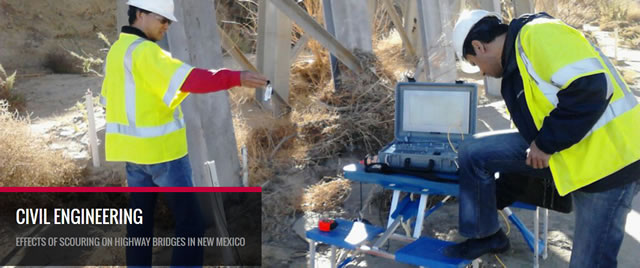
Civil Engineering ETDs
Publication Date
Spring 4-30-2020
Abstract
Civil and environmental engineering works at the interface of humans and the natural environment, making the environment hospitable for people and limiting adverse anthropogenic impacts on the ecosystem. Such socioecological systems are often complex and highly interconnected, and traditional engineering interventions focused on optimizing system elements result in unanticipated consequences. Resilience engineering utilizes a holistic methodology grounded in systems analysis and adaptation. This work broadly explores the concept of resilience engineering and contextualizes the approach using the case study of the Rio Chama. The resilience of the watershed is characterized in terms of its response to both traditional and resilience engineering interventions. As compared to traditional civil and environmental engineering approaches, resilience engineering can better support social and ecological well-being in complex systems over the long term.
Keywords
resilience, socioecological systems, watershed characterization, systems thinking, resilience engineering
Document Type
Thesis
Language
English
Degree Name
Civil Engineering
Level of Degree
Masters
Department Name
Civil Engineering
First Committee Member (Chair)
Mark Stone
Second Committee Member
Kerry Howe
Third Committee Member
Benjamin Warner
Recommended Citation
Jones, Michaela. "Resilience Engineering: Theory and Practice." (2020). https://digitalrepository.unm.edu/ce_etds/251
